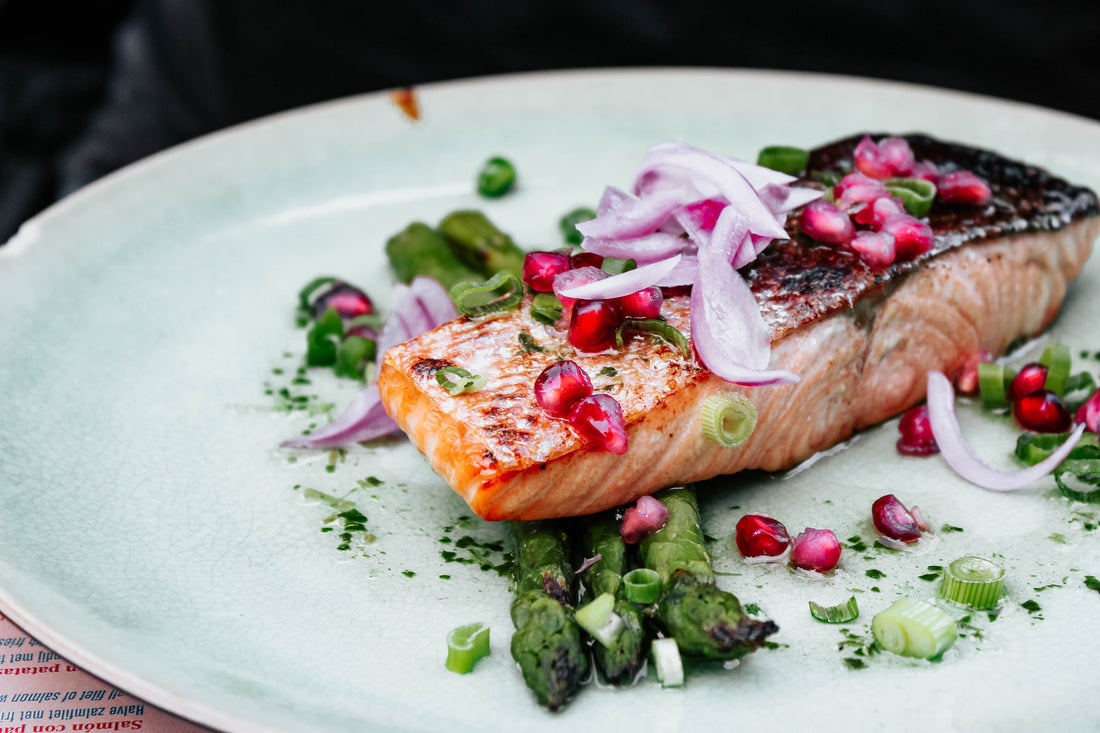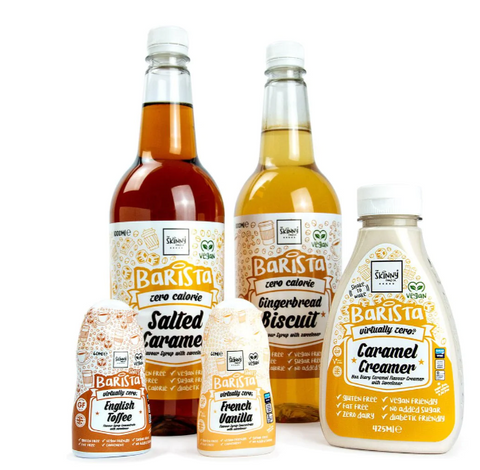Keto VS Low Carb : What Diet Is Best

Introduction to Keto Diet
Ketosis is a metabolic state characterized by high levels of ketone bodies in the blood. Ketosis occurs naturally during starvation, but can also be induced artificially via diuretics such as hydrochloric acid and potassium chloride, or even carbohydrate restriction alone. When there is no carbohydrates available, fats stored in adipose tissue are broken down into fatty acids (which may then serve as energy sources), and those released by the liver are converted into ketone bodies. Ketones are water-soluble molecules produced from acetyl CoA, which enters the Krebs cycle after being metabolized in mitochondria. Fatty acids are not used directly for cellular metabolism, but instead, undergo beta-oxidation in peroxisomes to produce acetyl-CoA. Acetyl-CoA is the substrate for the TCA cycle, electron transport chain, and synthesis of various biosynthetic intermediates including NADH+ H+, FADH2, GTP, UDP-glucuronic acid, glycerol 3 phosphate, phosphoenol pyruvate, ribose 5 phosphate, and deoxyribonucleotides. Some amino acids cannot be utilized by the cell under ketogenic conditions, thus leading to the development of a nitrogen catabolism known as glucagonostatic hypoglycaemia. As glucose utilization decreases, cells obtain their energy from fat breakdown rather than glycogenolysis.
What is the keto diet?:
The ketogenic diet has been around since 1920, when it was developed to treat children who had uncontrolled epileptic seizures. Today, many experts use it to lose weight. There are two versions of the ketogenic diet, one follows a very specific macronutrient ratio while the other allows for more choice. Both follow a similar process for entering ketosis—and staying in ketosis—but differ in micronutrients.
Generally speaking, a keto diet focuses on reducing carbohydrate intake and replacing with a higher fat intake, it is similar to lower carb diets, however, there are a few differences, which we will highlight throughout this article.
What is a low-carbohydrate diet?
Low-carb diets are just another term for low-calorie diets. These diets cut out entire food groups from the daily menu, such as bread, pasta, rice, potatoes, and all other carbs. Many studies show that low-carb diets are successful in losing weight. However, some research suggests that low-carb diets aren't effective over the long run.
In the short term, low-carb diets do work. They involve cutting out starchy foods, allowing the body to burn more calories throughout the day But if we're looking at the long term, things get complicated. One study found that people on low-carb diets regained all the weight lost plus more. Another study published in Obesity showed that people who followed a low-carb diet for three years gained back more weight than they started off with. And a third study published in Diabetes Care shows that people following a low-carb diet had a hard time sticking to them.
It's generally considered harder to retain and monitor your carb & calorie intake than other diets, as dieters can often feel disheartened and bored after 8-12 weeks of continuously following the diet plan. That's why it's important to give yourself regular 'treats' or new and exciting meals rather than following only restrictive diets.
Some experts believe that low-carb diets might actually set you up for diabetes. Others argue that it's too soon to tell whether low-carb diets are safe for everyone.
What can't you eat on a keto diet?
Whilst you can enjoy a whole range of meals, snacks & treats on Keto, there are foods you need to stay away from in order to remain in nutritional ketosis
- Sugar & Sugary Foods - The number one thing to avoid on a keto diet is sugary foods, this includes soda drinks, fruit smoothies, sweets, chocolates, ice creams, cakes etc. It's also important to note, that sugar-free alternatives, often include aspartame & other sweeteners which are unacceptable for keto dietary plans.
- Starch-based Foods - wheat-based foods such as pasta, rice & grains.
- Sauces - Condiments and sauces can be tricky when it comes to following a keto diet, low fat sauces are often not suitable for this dietary plan, alongside high-sugar sauces such as ketchup & BBQ.
- Unhealthy fats - processed oils & foods
- Fruit - Unfortunately, most fruit are too high in natural sugars for the ketosis to work, only small portions of small fruits such as blueberries and strawberries are generally accepted.
PS: Our Sauces & Syrups are Keto Friendly - You'll never have to sacrifice flavours when you eat Skinny Food Co!

What's the difference between a ketogenic diet and a low-carb diet?
Both the ketogenic diet and the low-carb diet are considered low-calorie diets. A ketogenic diet restricts carbohydrates to five percent or less of the total calories consumed each day, whereas a low-carb diet limits carbohydrates to less than 30 grams per day.
Although both are popular diets and are generally considered safe for people with certain medical conditions, the ketogenic diet should only be attempted by individuals who know how to manage themselves medically. People with epilepsy should consult a neurologist before starting any new dietary regimen.
There are pros and cons to both diets. For instance, a ketogenic diet can be difficult to maintain due to the limited availability of nutritious foods. Additionally, a ketogenic diet isn't suitable for everyone. People with kidney problems or thyroid disorders shouldn't consider going on a ketogenic diet.
People who want to start a ketogenic diet usually begin by eliminating starches and sugars from their diet. Then, they add moderate amounts of animal proteins and MCT oil.
Types of low-carb diets
One way to categorize low-carb diets is by the amount of carbohydrates they allow. Here are four popular categories:
• Very low-carb: Less than 20 net grams of carbohydrates per day.
• Low-carb: 20–50 net grams of carbohydrates per day.
• Medium-low-carb: 50–100 net grams of carbohydrates per meal.
• High-protein/high-fat: More than 100 net grams of carbohydrates per meal.
What are some other popular diet choices?
After reading a bit about the low carb or keto diet, you may not feel either of these are suited to your nutritional needs, and that's ok! Finding the right diet plan for you is important, it's important to set yourself achievable goals, that aren't fixated on quick wins or instant results, but something that's manageable without restricting all the things you love to eat.
There are a number of popular diet choices to choose from:
Vegan - Whether it's for ethical reasons or for weight loss, the vegan diet can be incredibly effective for weight loss, reducing dairy & meat products and replacing them with vegetable substitutes.

Pros of Veganism:
- Reduces risk of heart disease & promotes lower cholesterol levels
- Reduces risks of cancers
- Effective diet for people with diabetes as it helps reduce A1C levels.
Cons of Veganism:
- May require nutrient supplements ( loosing primary source of many vitamins)
- Can cause bloating
Paleo Diet - Unlike keto or low carb diet, the paleo diet isn't focused on counting the grams of carbs or calories within meals, rather, it's focused on eating the way early human life once ate, focusing on lean meats, fish, fruits, veggies & seeds.

Pros of Paleo:
-
Promotes healthy blood sugar levels
-
Improves cholesterol
-
Improved Insulin sensitivity
Cons of Paleo:
-
Eliminates a large amount of foods groups
-
Can be expensive to maintain
-
Often leads to yo-yo dieting due to difficulty to maintain
Detox Diets - Typically detox dieting includes a fasting period, followed by a diet including fruit, veg & water. Whilst it is used to target weight loss it is more effective as a cleanse rather than a long-term diet plan.

Pros of Detox:
-
Short-term effectiveness - unlike low-fat diets and those diets that manage carb intake, a detox diet can show quick weight loss results, without having to regularly manage and maintain your daily foods.
-
Cost-effective - from all of our above options, a detox diet is definitely a cheaper alternative, as it requires little protein or carbs.
Cons of Detox:
-
Highly restrictive - Although this diet does showcase instant results, there are minimal long-term health benefits to a detox diet
-
Unsustainable - It's likely that this diet will become an unsustainable method of dieting, as it reduces many food groups.
The Bottom Line
Ultimately, finding the right diet can be tricky, whether you're focusing on calories, grams of fat or sugar, maintaining a healthy diet is the most important thing. If you're looking for healthy alternatives to much-loved popular foods such as sauces, syrups & carbohydrates we have a wide range of products available online to help!



